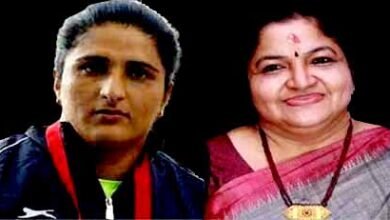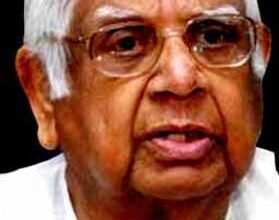
स्मृति का कोई मोल नहीं
भगत सिंह के साथ असेंबली में बम फेंकने वाले बटुकेश्वर दत्त की कहानी बताती है कि अपने शहीद क्रांतिकारियों को पूजने वाला यह देश जीते जी भी उनके साथ क्या -क्या सुलूक कर सकता है बटुकेश्वर दत्त की जिंदगी और उनकी स्मृति, दोनों की आजाद भारत में उपेक्षा हुई है साठ के दशक की एक घटना इस बात पर रौशनी डालती है जब बिहार में एक बस परमिट के लिए बटुकेश्वर दत्त की पटना के कमिश्नर के सामने पेशी हुई तो उनसे कहा गया कि वे स्वतंत्रता सेनानी होने का प्रमाण पत्र लेकर आएं।बटुकेश्वर दत्त का जन्म 18 नवम्बर 1910 को तत्कालीन बंगाल में बर्दवान जिले के ओरी गांव में हुआ था. कानपुर में कॉलेज की पढ़ाई के दौरान उनकी भगत सिंह से भेंट हुई। भगत सिंह से प्रभावित होकर बटुकेश्वर दत्त उनके क्रांतिकारी संगठन हिन्दुस्तान सोशलिस्ट रिपब्लिकन असोसिएशन से जुड़ गए उन्होंने बम बनाना भी सीखा क्रांतिकारियों द्वारा आगरा में एक बम फैक्ट्री बनाई गई थी जिसमें बटुकेश्वर दत्त ने अहम भूमिका निभाई।आठ अप्रैल 1929 तत्कालीन ब्रितानी संसद में पब्लिक सेफ्टी बिल और ट्रेड डिस्प्यूट बिल लाया गया था। इसका मकसद था स्वतंत्रता सेनानियों पर नकेल कसने के लिए पुलिस को ज्यादा अधिकार देना। इसका विरोध करने के लिए बटुकेश्वर दत्त ने भगत सिंह के साथ मिलकर संसद में बम फेंके। ये ध्यान खींचने के लिए किए गए धमाके थे जिनके साथ अपने विचार रखते पर्चे फेंके गए थे. इस विरोध के कारण यह बिल एक वोट से पारित नहीं हो पाया. ये दोनों क्रांतिकारी वहां से भागे नहीं और स्वेच्छा से गिरफ्तार हो गए।बाद में भगत सिंह, सुखदेव और राजगुरू को फांसी हुई जबकि बटुकेश्वर दत्त को काला पानी की सज़ा. फांसी की सजा न मिलने से वे दुखी और अपमानित महसूस कर रहे थे। बताते हैं कि यह पता चलने पर भगत सिंह ने उन्हें एक चिट्ठी लिखी. इसका मजमून यह था कि वे दुनिया को यह दिखाएं कि क्रांतिकारी अपने आदर्शों के लिए मर ही नहीं सकते बल्कि जीवित रहकर जेलों की अंधेरी कोठरियों में हर तरह का अत्याचार भी सहन कर सकते हैं। भगत सिंह ने उन्हें समझाया कि मृत्यु सिर्फ सांसारिक तकलीफों से मुक्ति का कारण नहीं बननी चाहिए बटुकेश्वर दत्त ने यही किया. काला पानी की सजा के तहत उन्हें अंडमान की कुख्यात सेल्युलर जेल भेजा गया. वहां से 1937 में वे बांकीपुर केन्द्रीय कारागार, पटना लाए गए. वर्ष 1938 में उनकी रिहाई हो गई. कालापानी की सजा के दौरान ही उन्हें टीबी हो गया था जिससे वे मरते-मरते बचे. जल्द ही वे महात्मा गांधी के असहयोग आंदोलन में कूद पड़े. उन्हें फिर गिरफ्तार कर लिया गया. चार साल बाद 1945 में वे रिहा हुए 1947 में देश आजाद हो गया. नवम्बर, 1947 में बटुकेश्वर दत्त ने शादी कर ली और पटना में रहने लगे. लेकिन उनकी जिंदगी का संघर्ष जारी रहा. कभी सिगरेट कंपनी एजेंट तो कभी टूरिस्ट गाइड बनकर उन्हें पटना की सड़कों की धूल छाननी पड़ी. बताते हैं कि एक बार पटना में बसों के लिए परमिट मिल रहे थे. बटुकेश्वर दत्त ने भी आवेदन किया. परमिट के लिए जब पटना के कमिश्नर के सामने पेशी हुई तो उनसे कहा गया कि वे स्वतंत्रता सेनानी होने का प्रमाण पत्र लेकर आएं. हालांकि बाद में राष्ट्रपति राजेंद्र प्रसाद को जब यह बात पता चली तो कमिश्नर ने बटुकेश्वर से माफ़ी मांगी थी 1964 में बटुकेश्वर दत्त अचानक बीमार पड़े. पटना के सरकारी अस्पताल में उन्हें कोई नहीं पूछ रहा था. इस पर उनके मित्र चमनलाल आजाद ने एक लेख में लिखा, ‘क्या दत्त जैसे कांतिकारी को भारत में जन्म लेना चाहिए, परमात्मा ने इतने महान शूरवीर को हमारे देश में जन्म देकर भारी भूल की है. खेद की बात है कि जिस व्यक्ति ने देश को स्वतंत्र कराने के लिए प्राणों की बाजी लगा दी और जो फांसी से बाल-बाल बच गया, वह आज नितांत दयनीय स्थिति में अस्पताल में पड़ा एड़ियां रगड़ रहा है और उसे कोई पूछने वाला नहीं है.’
बताते हैं कि इस लेख के बाद सत्ता के गलियारों में थोड़ी हलचल हुई. तत्कालीन केंद्रीय गृहमंत्री गुलजारी लाल नंदा और पंजाब के मंत्री भीमलाल सच्चर ने आजाद से मुलाकात की. पंजाब सरकार ने बिहार सरकार को एक हजार रुपए का चेक भेजकर वहां के मुख्यमंत्री केबी सहाय को लिखा कि यदि पटना में बटुकेश्वर दत्त का इलाज नहीं हो सकता तो राज्य सरकार दिल्ली या चंडीगढ़ में उनके इलाज का खर्च उठाने को तैयार है इस पर बिहार सरकार हरकत में आयी. दत्त के इलाज पर ध्यान दिया जाने लगा. मगर तब तक उनकी हालत बिगड़ चुकी थी.22 नवंबर 1964 को उन्हें दिल्ली लाया गया. यहां पहुंचने पर उन्होंने पत्रकारों से कहा था कि उन्होंने सपने में भी नहीं सोचा था जिस दिल्ली में उन्होंने बम फोड़ा था वहीं वे एक अपाहिज की तरह स्ट्रेचर पर लाए जाएंगे.
बटुकेश्वर दत्त को सफदरजंग अस्पताल में भर्ती किया गया. बाद में पता चला कि उनको कैंसर है और उनकी जिंदगी के कुछ ही दिन बाकी हैं. कुछ समय बाद पंजाब के मुख्यमंत्री रामकिशन उनसे मिलने पहुंचे. छलछलाती आंखों के साथ बटुकेश्वर दत्त ने मुख्यमंत्री से कहा, ‘मेरी यही अंतिम इच्छा है कि मेरा दाह संस्कार मेरे मित्र भगत सिंह की समाधि के बगल में किया जाए उनकी हालत लगातार बिगड़ती गई.17 जुलाई को वे कोमा में चले गये और 20 जुलाई 1965 की रात एक बजकर 50 मिनट पर उनका देहांत हो गया. बटुकेश्वर दत्त की अंतिम इच्छा को सम्मान देते हुए उनका अंतिम संस्कार भारत-पाक सीमा के करीब हुसैनीवाला में भगत सिंह, राजगुरू और सुखदेव की समाधि के पास किया गया एक पुरानी कहावत है. जीते को मांड नहीं और मरे को खांड. लेकिन बटुकेश्वर दत्त के साथ तो इससे भी बुरा हुआ. आजाद भारत में न जीते जी उनकी कोई पूछ रही और न ही उनकी स्मृति का कोई मोल दिखता है।
======== ======== =========
There is no value in memory..?
The story of Batukeshwar Dutt, who threw a bomb at the assembly along with Bhagat Singh, tells what can this country, which worships its martyr revolutionaries, do to them even when they are alive. Both Batukeshwar Dutt’s life and his memory are neglected in independent India. An incident that happened in the sixties throws light on this when Batukeshwar Dutt appeared before the Patna commissioner for a bus permit in Bihar, he was asked to bring a certificate of being a freedom fighter. Batukeshwar Dutt was born on 18 November 1910 in Ori village of Burdwan district in the then Bengal. He met Bhagat Singh during his college studies in Kanpur. Influenced by Bhagat Singh, Batukeshwar Dutt joined his revolutionary organization Hindustan Socialist Republican Association. He also learned to make bombs. A bomb factory was built in Agra by the revolutionaries, in which Batukeshwar Dutt played an important role. On April 8, 1929, the Public Safety Bill was passed in the then-British Parliament. And the Trade Dispute Bill was brought. Its purpose was to give more power to the police to crack down on freedom fighters. To oppose this, Batukeshwar Dutt along with Bhagat Singh threw bombs into the Parliament. These were explosions carried out to attract attention with which pamphlets containing their views were thrown. Due to this protest, this bill could not be passed by one vote. Both these revolutionaries did not run away from there and were arrested voluntarily. Later, Bhagat Singh, Sukhdev, and Rajguru were hanged while Batukeshwar Dutt was sentenced to black water. He was feeling sad and humiliated for not getting the death sentence. It is said that after knowing this, Bhagat Singh wrote a letter to him. Its purpose was to show the world that revolutionaries can not only die for their ideals but can also survive and bear all kinds of torture in the dark cells of jails. Bhagat Singh explained to him that death should not become the only reason for freedom from worldly troubles, Batukeshwar Dutt did the same. Under the punishment of black water, he was sent to the infamous Cellular Jail in Andaman. From there in 1937 he was brought to Bankipur Central Jail, Patna. He was released in the year 1938. During the punishment of Kalapani, he got TB, due to which he was saved from dying. Soon he jumped into Mahatma Gandhi’s non-cooperation movement. He was arrested again. He was released after four years in 1945, the country became independent in 1947. Batukeshwar Dutt got married in November 1947 and started living in Patna. But the struggle of his life continued. Sometimes as a cigarette company agent and sometimes as a tourist guide, he had to sift through the dust on the streets of Patna. It is said that once permits were being given for buses in Patna. Batukeshwar Dutt also applied. When he appeared before the commissioner of Patna for the permit, he was asked to bring the certificate of being a freedom fighter. Although later, when President Rajendra Prasad came to know about this, the commissioner apologized to Batukeshwar. In 1964, Batukeshwar Dutt suddenly fell ill. No one was asking him in the government hospital in Patna. On this, his friend Chamanlal Azad wrote in an article, ‘Should a revolutionary like Dutt be born in India, God has made a huge mistake by giving birth to such a great warrior in our country. It is a matter of regret that the person who sacrificed his life for the freedom of the country narrowly escaped the gallows, today is rubbing his heels lying in a very pathetic condition in the hospital and there is no one to ask him. ‘
It is said that after this article there was some stir in the corridors of power. The then Union Home Minister Gulzari Lal Nanda and Punjab minister Bhimlal Sachar met Azad. The Punjab government sent a check of Rs 1,000 to the Bihar government and wrote to Chief Minister KB Sahai that if Batukeshwar Dutt could not be treated in Patna, the state government was ready to bear the cost of his treatment in Delhi or Chandigarh. I came to Dutt’s treatment and started getting attention. But by then his condition had deteriorated. He was brought to Delhi on 22 November 1964. On reaching here, he had told reporters that he had never imagined that he would be brought on a stretcher like a cripple in the Delhi where he had exploded the bomb.
Batukeshwar Dutt was admitted to Safdarjung Hospital. Later it came to know that he has cancer and only a few days are left in his life. After some time the Chief Minister of Punjab, Ramkishan came to meet him. With tears in his eyes, Batukeshwar Dutt told the Chief Minister, ‘It is my last wish that I will be cremated next to the tomb of my friend Bhagat Singh. His condition continued to deteriorate. On 17 July he went into a coma and died on 20 July 1965. He died at 1:50 the night. There is an old saying that Batukeshwar Dutt was cremated near the mausoleums of Bhagat Singh, Rajguru, and Sukhdev at Hussainiwala near the Indo-Pak border, respecting his last wish. There is no starch for the living and sugar for the dead. But even worse happened with Batukeshwar Dutt. In independent India, no one is asking about him while he is alive, nor does his memory have any value.
Prabhakar Kumar.





